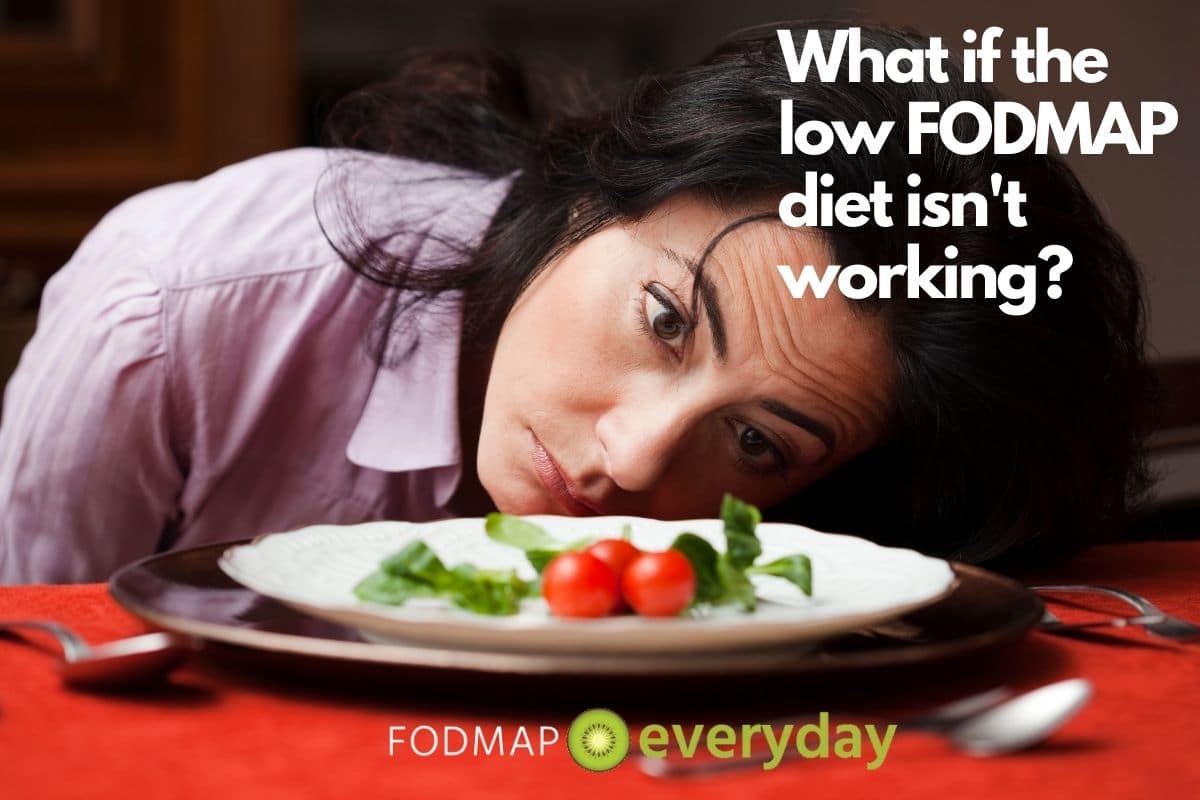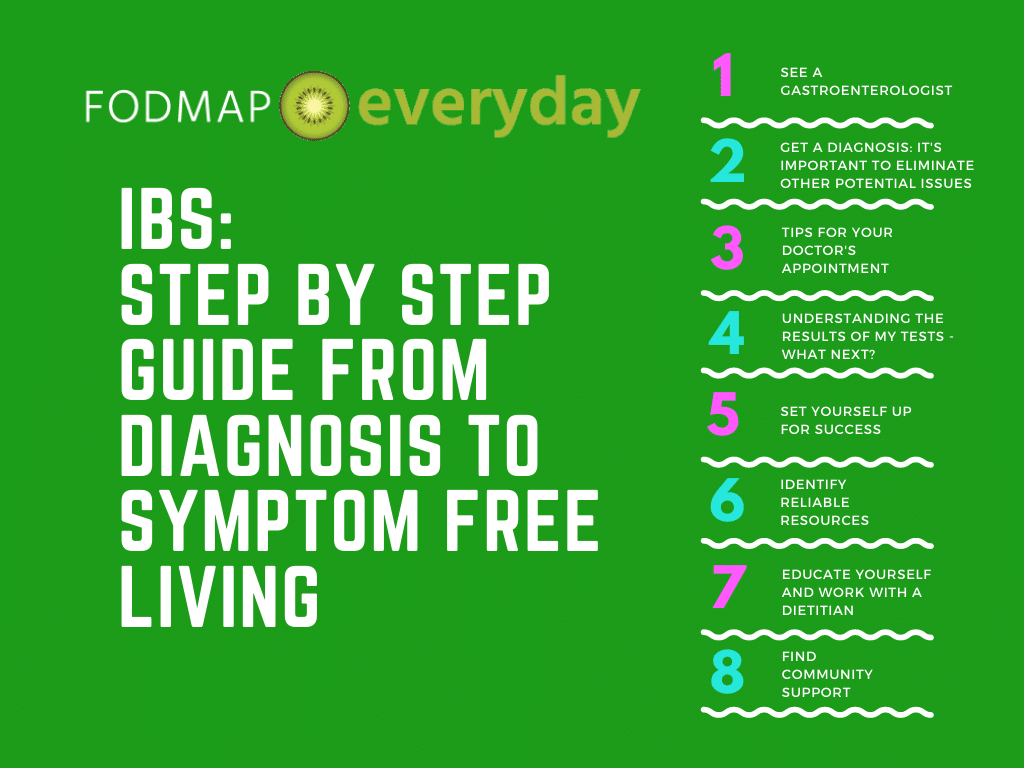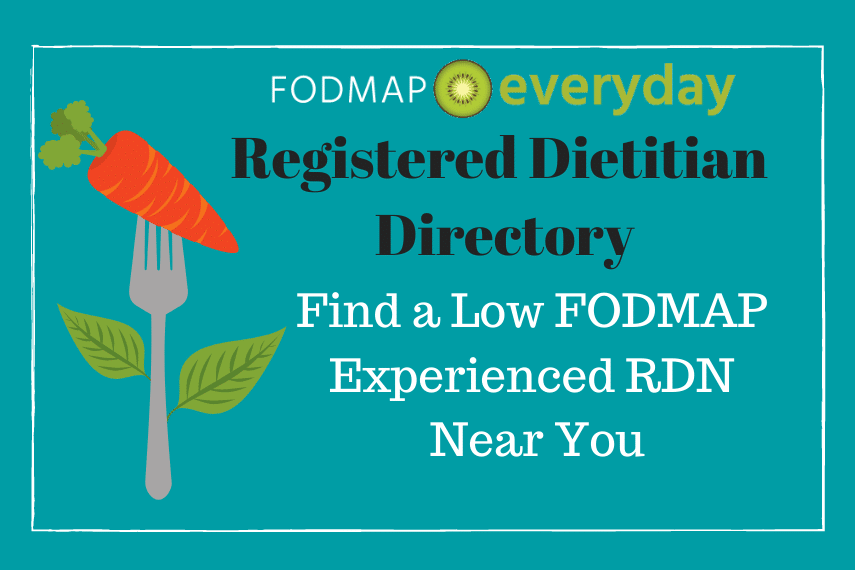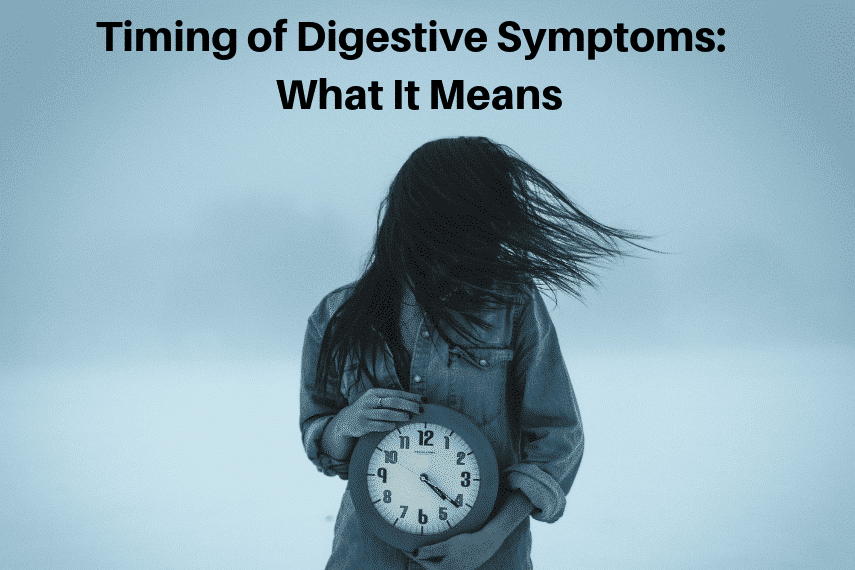For the about 75% of those with IBS for whom the low FODMAP diet works, it can be a godsend. It can literally change your life by allowing you to function again, and regain a great relationship with food.
But what if the low FODMAP diet is not working for you? What do you do? We know you want symptom relief.

Here are 6 areas to look at if the low FODMAP diet is not working for you.
1. Do You Have An IBS Diagnosis?
First let’s start at the beginning. Do you have an IBS diagnosis from a medical doctor? We are not talking about self-diagnosis. If you answered some questions from an online article and decided you have IBS, or if your BFF, coworker or relative told you it sounds like you have IBS, those “diagnoses” do not count!
The low FODMAP diet is most effective when addressing IBS symptoms, so step number one is having an accurate diagnosis. BTW we have an article titled Is The Low FODMAP Diet For Me? and there are questions to answer – but they ask whether you have a diagnosis from a medical doctor.
Be sure to read our IBS: A Step by Step Guide from Diagnosis to Symptom Free Living

To learn more about getting a proper diagnosis be sure to read IBS: Step by Step Guide From Diagnosis to Symptom Free Living
You Have IBS, Now What?
So, for the purposes of this article, we will assume you do have a medical diagnosis of IBS, and that your doctor has recommended the low FODMAP diet. Perhaps you were given a sheet of paper with a list of foods to eat, and foods to eliminate. You have been trying to follow the diet, but are not finding the relief you expected. Let’s talk about what to do next.
2. Check Your Resources
The low FODMAP diet is nuanced and complex and the first thing you have to make sure of is that you are using reputable resources. The sad state of affairs is that there are many resources that claim to present accurate low FODMAP diet information, when they actually do not.
Researchers from Monash University and FODMAP Friendly developed the diet. Both of these entities have smartphone apps, which contain the most up-to-date information. Please do not rely on any of the free apps that are out there; they are not accurate, and in some cases, present patently false information. The same can be said of books, websites, bloggers and even that piece of paper handed to you by your doctor could be out of date.
We know this sounds scary, but if you stick with information coming from Monash University and FODMAP Friendly you will have the information that you need, and it will be correct.
By the way, FODMAP Everyday® is accredited by FODMAP Friendly, as I am accredited personally as a FODMAP educator. I am also Monash University trained, as is our team of Registered Dietitians. Always check resources and credentials.
3. Are You Actually Following The Diet?
We know this headline and question is very provocative, but it must be asked. Are you actually following to low FODMAP diet? This is completely related to the information above. If you have been “following” the diet, but using faulty information as your touchstone, then you actually have not been following the diet. This is why it is vitally important that you use the resources recommended above.
Here are some ways you might not be following the diet:
- You might be eating foods that have been mislabeled as low FODMAP.
- You might be consuming low FODMAP foods, but in greater quantities than suggested, which means you are actually eating Moderate or High FODMAP amounts.
- You might not be taking stacking into account, either within the same meal or possibly when eating two meals, or a meal and a snack, too close together.
- Perhaps your Elimination Phase was not structured well enough, and you progressed to your Challenge Phase too quickly; you would not have gathered clear information to apply to your personal digestive situation.
- Maybe your Elimination Phase just wasn’t long enough, period!
- Or maybe, if you are relying heavily on package foods, you are missing some high FODMAP ingredients on the label.
These are just some of the most common reasons.
Now would be a good time to review our article on serving sizes, stacking, label reading in general, understanding the FDA nutrition label and our article on deciphering label terminologies, such as natural flavoring.
We also suggest looking into the Low FODMAP Gentle Diet, which has a simpler approach that might be appropriate for you.
4. Are You Working With A Registered Dietitian?
Monash University, and we, suggest that you undertake the diet along with the guidance of a registered dietitian (or the equivalent in your country). A FODMAP trained dietitian can help fine-tune your approach. They will make sure that you are following the diet in the best way for you, which will not be the same for everyone.

Looking for a low FODMAP experienced Registered Dietitian? This global directory is a great place to start!
For instance, if you are a vegan, have diabetes, an eating disorder, are dealing with diverticulitis or for a host of other reasons, a registered dietitian will specify a particular way for you to follow the diet. Not only to give you a better chance of success, in terms of IBS symptom relief, but also to make sure that you come out the other end with a positive relationship with food and have addressed any concurrent medical issues or lifestyle choices.
Please do not try to strategize with others via social media. They are not your medical team and even if something worked for them, it does not mean it is appropriate for you.
5. How Do You Tell If The Diet Is Working?
How do you tell if the diet is working or not? There is a symptom tracker within the Monash University smart phone app. You can find it under the “Diary” icon. Keeping track of what you eat, how much you eat, and when you eat will go a long way to helping you connect symptoms to food ingested.
Our article on Timing of Digestive Symptoms would be perfect to review at this time.
You could also use a simple number system with yourself. Let’s say a complete lack of IBS symptoms could be assigned the number zero, representing no symptoms. Then, as you follow the diet you can check-in with yourself; daily, or even multiple times a day, assign a number to represent your symptoms. If you are doubled over in agony or cannot be further away than a 15 second dash to a toilet, then that would represent a 10 on the scale. A mild tummy rumble might be a 1.

You may want to read: Timing of Digestive Symptoms: What It Means
Bear in mind that everyone’s response to the low FODMAP diet is individual, and also that the types of symptoms and severity of symptoms can very person to person, and also day-to-day within the same person.
It is also very important to remember that for most people their symptoms do not resolve completely. It would not be unusual to have mild bloating, or to fart, for instance!
Other factors that might affect your breakthrough IBS symptoms are stress, anxiety, medication, menstruation, other medical conditions and lifestyle.
The Elimination Phase lasts an average of four weeks, at which point the Challenge Phase can commence, but only if you have experienced adequate symptom relief. If you have not, it is definitely time to consult with a FODMAP trained dietitian, if you haven’t already.
6. FODMAPs Might Not Be The Issue
According to Monash University, 20% to 50% of people will not respond to the low FODMAP diet. This is because FODMAPs might not be the issue at all, or might only be part of the picture.
The best-case scenario is that when you were diagnosed by a medical professional with IBS, the diagnosis came after careful screening. Firstly, there are many medical issues with symptoms that mimic IBS, and they need to be ruled out, and secondly, it is not unusual for people to have concurrent medical issues along with IBS (about 36% of us do).
Have You Been Diagnosed With Concurrent Medical Issues?
Some of the more common concurrent medical issues include celiac disease, endometriosis, diverticulosis, inflammatory bowel disease, GERD, SIBO, histamine issues along with full-blown food allergies as well as other food intolerances, such as problems digesting fat, dairy or gluten. Spicy foods, alcohol and caffeine can be triggers for some as well.
All of these issues have to be screened by a medical doctor. Do not self-diagnose and do not rely on any home tests.
Know that it is very common to be dealing with IBS along with other medical issues.
Registered Dietitians To The Rescue
The low FODMAP diet is meant to be undertaken along with a Registered Dietitian (RD, or equivalent in your country). The diet is nuanced and complex; statistically and anecdotally you will have a greater chance of success if you work with one.
We have put together a series of articles called Working With A Dietitian to help you learn why you should work with a dietitian, how to find the right dietitian for you, the difference between dietitians and nutritionists, what to expect from working with one, tips for successful telehealth appointments, and more.
Please take the time to familiarize yourself with these articles and resources:
- Have IBS? Top Reasons To Work With A Dietitian
- IBS: Step by Step Guide from Diagnosis to Symptom Free Living
- The Role of the Gastroenterologist vs. The Dietitian
- How To Choose A Dietitian
- Dietitians & Nutritionists: What’s The Difference?
- Patient Dos And Don’ts For A Great Telehealth Appointment
- Global Dietitian Directory
The Takeaway
The low FODMAP diet can eliminate or greatly reduce painful and debilitating symptoms in about 75% of those with IBS. It also might not work for 20% to 50% of you. If the diet has not helped you as much as you expected there are 6 areas to look at:
- Do you have a medical diagnosis of IBS? (No self-diagnosing!)
- Review your FODMAP resources and stick with Monash University and FODMAP Friendly information.
- Be as objective as possible when assessing your compliance to the diet. Are you really following it?
- Are you working with a registered dietitian (or the equivalent in your country)? It is easier now more than ever to find a dietitian to work with, as many of them will meet remotely via phone, Skype, or Zoom.
- Do you have realistic expectations of what the diet can do for you? For the great majority of people, the diet does not provide 100% relief – but it does provide enough.
- FODMAPs might not be the main issue, or possibly not the issue at all. Please make sure you work with your medical doctor and team to screen for any possible concurrent medical issues. Remember that it is very common for IBS to present along with other medical issues.







